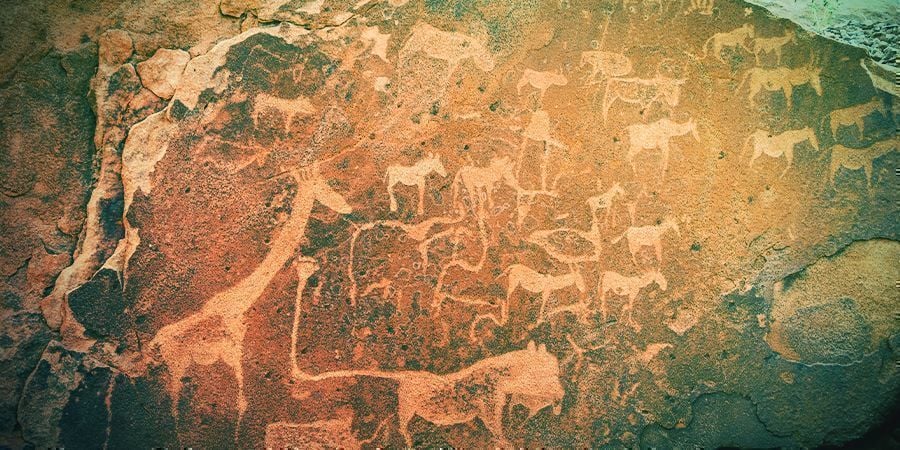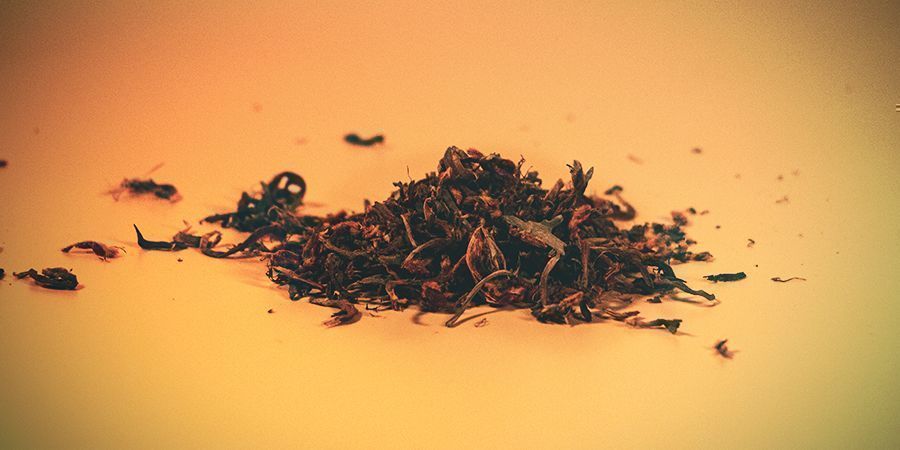Wild Dagga: A Gentle Euphoriant
Wild dagga provides a mild and uplifting psychoactive effect. It's definitely a species to add to your herb cabinet. Read on to learn about its habitat, history, and modern use.
Nature offers a plethora of herbs and fungi that produce compelling effects on human consciousness. Various cultures from around the world have invoked this menu of psychoactive specimens—from the Amazon rainforest and Gabon to the meadows of England—to produce altered states of being.
Wild dagga falls into this unique category of life forms. Although the mechanism behind the plant’s effects remains unknown, indigenous peoples have long used the plant for its subtle mind-altering properties.
WHAT IS WILD DAGGA?
Wild dagga goes by the Latin binomial Leonotis leonurus and the alternative name of lion’s tail. The plant belongs to the mint family, Lamiaceae, alongside refreshing species such as spearmint, applemint, and Japanese peppermint.
Wild dagga belongs to the Leonotis genus within this botanical family. Endemic to southern and eastern Africa, the genus consists of nine different species of annual, perennial, deciduous, and evergreen shrubs.
Native to southern Africa, wild dagga thrives in a native habitat of damp grasslands. Specimens grow to anywhere between 100 and 200cm in height and about 45–110cm wide. The semi-evergreen shrub produces lance-shaped leaves that reach a maximum length of 12cm. Perched among the canopy sit reddish-orange flowers that bloom in autumn and early winter—each reaching an average size of 6cm.
The shape and colour of these impressive blossoms are the result of evolutionary adaptation. The tubular shape and bright shades of orange-red mimic the curved bills of African sunbirds, allowing them to easily feed from the flowers. The bright colours also attract pollinators such as butterflies.
Despite the psychoactive nature of wild dagga, cultivation remains legal in some countries. Often grown for ornamental purposes, the plant was introduced to Europe in the 1600s, and later into America and beyond. After naturalising, the species now grows wild in California, Hawaii, and Australia.
HISTORY OF WILD DAGGA

The very word “dagga” derives from the Khoikhoi word “dachab", meaning "cannabis". Translated as “wild cannabis”, wild dagga received its name thanks to the mild psychoactive effect it produces.
The indigenous peoples of southern Africa have traditionally utilised wild dagga for its mind-altering properties and purported holistic effects. Various parts of the plant, including the roots, stems, leaves, flowers, and seeds, were used for these purposes. Typical methods of administration included oral intake of decoctions and topical application of ointments.
EFFECTS OF WILD DAGGA

Wild dagga produces a slightly euphoric and mildly psychoactive effect. Researchers have identified many constituents in wild dagga, including leonurine. The water-soluble molecule shares a similar chemical structure to THC and may produce a similar effect, only much milder.
Wild dagga users report experiencing feelings of serenity, relaxation, and euphoria. These effects make the herb popular in settings and scenarios where cannabis might be used, such as while relaxing at home, reading, or when socialising with friends. Some subjective accounts also describe sensations of warmth, visual enhancements, and fuzziness.
-
 4 min
21 January 2022
Top 10 Tobacco Alternatives For Spliffs
Tobacco helps spliffs to burn evenly and slowly, but the high nicotine content can cause users to become overstimulated. Why not explore the vast world of herbs for a fitting alternative? The 10...
4 min
21 January 2022
Top 10 Tobacco Alternatives For Spliffs
Tobacco helps spliffs to burn evenly and slowly, but the high nicotine content can cause users to become overstimulated. Why not explore the vast world of herbs for a fitting alternative? The 10...
-
 5 min
9 June 2020
Best Natural (Vape) Herbs For Relaxation
We’ve all been there; that moment after a long, draining day working 9–5. You feel mentally exhausted as soon as you walk through your front door. What can you do about it? Well, plenty, actually!...
5 min
9 June 2020
Best Natural (Vape) Herbs For Relaxation
We’ve all been there; that moment after a long, draining day working 9–5. You feel mentally exhausted as soon as you walk through your front door. What can you do about it? Well, plenty, actually!...
-
 5 min
30 April 2020
10 Best Herbs To Brew A Tea With
At least since the ancient Egyptians, herbs have been brewed into tea. Teas can be used as stimulants and sedatives or even as aphrodisiacs. Use vaping herbs to make teas that can be beneficial in...
5 min
30 April 2020
10 Best Herbs To Brew A Tea With
At least since the ancient Egyptians, herbs have been brewed into tea. Teas can be used as stimulants and sedatives or even as aphrodisiacs. Use vaping herbs to make teas that can be beneficial in...
-
 3 min
14 January 2020
Top 7 Products To Help You Relax
Whether you prefer to smoke your way to tranquility or simply pop a capsule, this handy guide will help you find a product that suits your needs. Here are the 7 best products to help you relax, all...
3 min
14 January 2020
Top 7 Products To Help You Relax
Whether you prefer to smoke your way to tranquility or simply pop a capsule, this handy guide will help you find a product that suits your needs. Here are the 7 best products to help you relax, all...
-
 5 min
25 July 2019
The Best Alternatives To Coffee: Natural Ways To Boost Energy
Although it may be hard to believe, not everybody is a fan of coffee. In case you happen to be one of those people, here is a list of perfect alternatives to the famous caffeinated beverage. Some...
5 min
25 July 2019
The Best Alternatives To Coffee: Natural Ways To Boost Energy
Although it may be hard to believe, not everybody is a fan of coffee. In case you happen to be one of those people, here is a list of perfect alternatives to the famous caffeinated beverage. Some...
-
 5 min
6 August 2017
The Best Vaporizers For Smoking Dry Herbs
Looking to vape dry herbs? Check out this list for an in-depth look at our best dry herb vaporizers. They will put a smile on any vaper's face.
5 min
6 August 2017
The Best Vaporizers For Smoking Dry Herbs
Looking to vape dry herbs? Check out this list for an in-depth look at our best dry herb vaporizers. They will put a smile on any vaper's face.













 United States
United States












